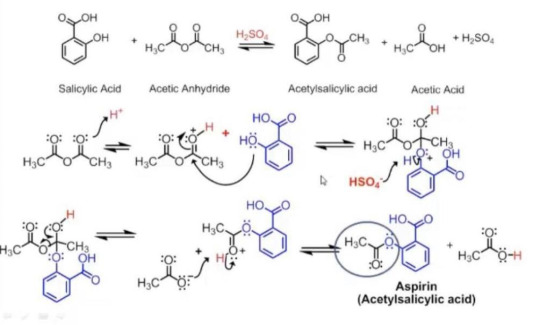#but it was all about analytical chemistry methods applied specifically to organic compounds!! nmr and gc-ms and ftir and uv-vis type stuff!!
Note
is organic chemistry really that bad? every time someone tells me how terrible it is the little spite demon in my head says "well /i/ would be perfect at it 😤"
if so, what makes it so bad?
i do think organic chemistry is really neat as a concept, and there's really cool stuff happening there—but i scraped through ochem lectures at uni by the skin of my teeth. (which is why i focus on analytical chemistry (love of my life) and ended up in the inorganic department for my doctoral work.)
for some people it's really their thing, and everything clicks for them! i personally had a problem where i would do horribly on the exams, and people would say "oh well you can't just memorize the reactions, you have to understand the mechanisms and do the electron-pushing" and i'd be like "...yeah ok but i thought i did understand it." because i'm definitely better at understanding concepts than memorizing reactions. but the exam scores would prove me wrong. (the wet lab portions of the courses, however—enjoyed those and did fairly well. loved some hands-on work. i do also find amusing the aspect of ochem where you can go from "ok so in theory, on paper, this is the reaction that happens" to "if you actually run this reaction in a lab, you will generate about eight different products. you will get a 10% yield if you are lucky. have fun isolating your desired product.")
i think the difficulty is just that you have to understand the whole mechanism, and how slight differences in the initial structure of the starting material or reagent can result in very different outcomes. i've heard people who loved ochem say that the issue is just that it's taught horribly (similar to what i've heard about upper-level maths courses), but i think it just doesn't mesh with my brain very well for whatever reason. at least in the "you need to Know all of this and answer an exam correctly" setting; i do still enjoy reading an occasional paper about new reactions they're doing, or something. and the mechanisms are cool to look at, as long as i don't have to come up with them on my own.

like, look at this! you can explain why it is that when you mix two things in acidic conditions, you get a new thing, based on electrons and atoms and bonds! and then ochem concepts get applied to biology and you get biochemistry, to explain how the human body works the way it does, from dna to proteins to how drugs get metabolized! (insert "chemistry is the most foundational of all sciences" spiel here. don't tell the physicists i said that. it's a joke.)
anyway. regardless of why ochem has the reputation it does: once a course has that notoriety—good luck changing that public opinion, lol. (realising as i'm getting to the end of this that a bit of that probably also comes from ochem being like a 4th/5th-year premed type course requirement, where you've got a bunch of people taking it who truly probably don't need to know the ins and outs of drug synthesis and might be having a hard time finding it relevant to their work? i was a chem major, so i had it as a 1st/2nd-year course. and also i was a chem major.)
#that got a bit long. whoops!#answered#anyway i just didn't want to come off as absolutely hating on ochem!! it's not my cup of tea but it is neat and i respect folks who do it!!#i did have a lot of fun with another course i got to take for my masters#to fulfill my ochem requirement#but it was all about analytical chemistry methods applied specifically to organic compounds!! nmr and gc-ms and ftir and uv-vis type stuff!!
6 notes
·
View notes